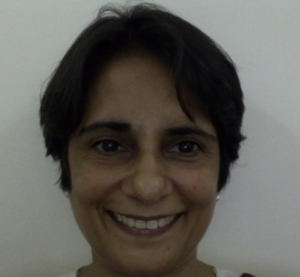Dr. Gagandeep Kang – Medical Researcher and Clinical Scientist

Dr. Gagandeep Kang, a medical researcher and clinical scientist, is a brilliant example of a woman thriving within the scientific community. Being the first Indian woman to be elected to the fellowship of the Royal Society of London, she is known for her various achievements including her work on rotaviruses in India.
Her journey in STEM began in childhood itself. As a child, Dr. Kang lived a fast-paced life, shifting schools every few years due to her father’s transferable job. However, what remained constant was the learning environment her parents created for her at home. From a young age she excelled in most subjects, and when the time came to choose her path, she struggled to make a decision. She knew that if she ever wanted to change her decision, it would be easier to switch from the sciences to the humanities than the other way around. Therefore, considering her deep interest in biology and mathematics, she eventually ended up selecting science perhaps knowing that in it she would find passion and ambition. Although she did initially believe that she wanted to pursue psychology or ophthalmology instead of public health.
Dr. Kang completed her Bachelor of Medicine, Bachelor of Surgery (MBBS) and her Doctor of Medicine (MD) in Microbiology from the Christian Medical College, Vellore, a college established by a woman and originally meant only for girls pursuing medicine. However, despite the empowering environment in her education, stereotypes continued to follow her, much like for most women in the sciences. “People put you in boxes, categorizing you based on gender, religion, caste etc., so the idea of a status develops, and people treat you based on this status.” Being a woman in science in India, means constantly asserting yourself to be heard, especially so in northern India. On a global stage, being a citizen of a lower middle-income country means constantly pushing your point for it to be considered valuable. In fact, the social construct that women are homemakers meant to primarily handle the household chores and the children can lead to several women multitasking despite their heavy professional workloads. Dr. Kang believes she was fortunate enough to have supportive parents who helped in many ways, including taking care of her son when her husband was unwell.
After attaining a PhD, obtaining membership at the Royal College of Pathologists, conducting postdoctoral research in Houston, and being on the faculty for a dozen years, Dr. Kang believes she was about forty years old when she began to prioritize herself and her career; her career truly transformed, and she achieved much success in public health and vaccine research. Along the way, some of her strongest collaborations have been with other women and she has developed several friendships that have only improved the working experience. “Women are always more willing to recognize the value that others bring to the work-place.”
Dr. Kang has always focused on long term goals rather than short term in order to transform public health research in India. Scientific funding is limited and therefore an effective strategy is necessary. In the future, she aims to create more programs that have large impacts rather than those with small and incremental value. Dr. Kang encourages all those wanting to pursue STEM to do so. She advises them to become as interdisciplinary as possible because the more you work with and have exposure to other fields, the more you become aware of what is expected, what is possible and how you can truly make an impact.
